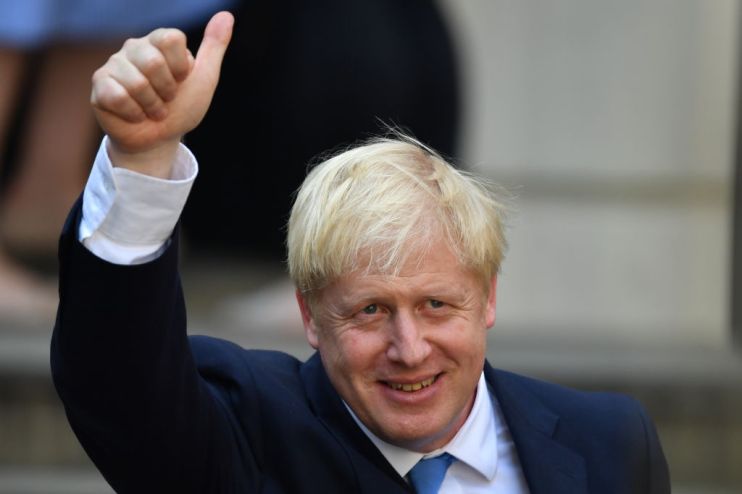Boris Johnson must be brave enough to disappoint some of his backers

Boris Johnson’s victory in the Conservative leadership race was never in doubt, and in truth neither was the scale of his win.
Two of out three Conservative members backed the former foreign secretary, giving him a sizeable mandate from the party faithful.
Together with securing the support of more than half of his parliamentary colleagues, Johnson enters Downing Street on the crest of a blue wave.
However, it will not be long before that wave crashes upon the rocks of political reality, and if he is to withstand the impact Johnson must learn from Theresa May’s early errors and be prepared to disappoint people.
The hard-Brexit wing of the Tory party who rowed in behind him so early in the contest – Priti Patel, Iain Duncan Smith, Jacob Rees-Mogg – will all be looking for Johnson to create a cabinet focused on taking the UK out of the EU on 31 October with or without a deal.
This tranche of the Conservative party – all part of the European Research Group (ERG) – will want to see Johnson’s commitment to that pledge reflected in the make up of the top tier of his team.
A key role is that of chancellor, and the pressure will be on to ensure Philip Hammond’s successor is a true Brexiter who is prepared to countenance a no deal Brexit.
Liz Truss, Sajid Javid and Matt Hancock are the names most frequently spoken about to take over 11 Downing Street, but with none of them backing Brexit in the EU referendum, the ERG may be worried about having another Remainer’s hands on the purse strings. Many see Javid as Brexiter at heart who backed Remain out of political expedience, but if he is appointed to the Treasury you can expect him to be an enthusiastic backer of the Boris position.
Installing hard Brexiters in top positions might play well with the ERG, but such a move could provoke further spilts in an already divided party.
Johnson may feel he as the mandate to push forward with a no deal Brexit at the end of October, but if less swashbuckling Tories such as Amber Rudd, Matt Hancock and his defeated leadership rival Jeremy Hunt are booted out of the cabinet or offered humiliating demotions, the anti-no deal rebellion on the backbenches could grow.
Keeping them in the cabinet, and even perhaps offering them promotions in a bid to build party unity, could be interpreted as Johnson repeating May’s mistake of constantly playing the sides off against each other without being clear where her true intentions on Brexit lay until it was too late.
Johnson faces the same dilemma, but May had one thing he does not: time. The clock is ticking – there are 100 days until the UK either leaves the EU with or without a deal, or asks for another extension. If Johnson is forced into seeking more time, he will have failed the test on which he built his entire leadership campaign.
The new Prime Minister needs to use the endorsement from MPs and party members as the justification for picking a course on Brexit and sticking to it.
He needs to do something which does not come naturally to him: he needs to be comfortable with disappointing people.